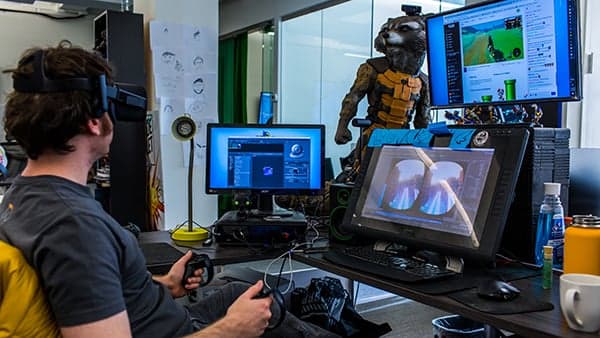The modern video game industry is developing at a rapid pace, and the profession of a game developer is becoming one of the most sought-after and attractive. International game development schools offer a unique opportunity to receive quality education that combines creative approaches and technical expertise. For many students, this is the first step towards working in the largest game studios creating AAA projects — large-scale games with high budgets and complex mechanics. Education at such schools emphasizes practical skills, learning modern engines and programming, as well as immersion in teamwork — all of which closely resemble real industry conditions.
Success Stories of Graduates — From Classrooms to Major Studios
In recent years, success stories of graduates from international game development schools have become an inspiration for many beginners. For example, a graduate from a school in Spain, having started with basic courses in programming and 3D modeling, now works as a lead programmer in a well-known European studio collaborating with world-class publishers within five years. His story is an example of how the right education, practice, and perseverance lead to results.
Another graduate who studied at an international school in Portugal managed to realize his ideas in an indie project that was noticed by major platforms and received funding. Later, he was invited to join the team of a major AAA project, where he became a level design specialist. His path shows how education in an international environment allows not only gaining knowledge but also establishing important industry contacts.
Such stories are not uncommon. Many schools maintain close ties with game companies, organize internships, and help graduates quickly find jobs in their field. This is especially relevant for students from Portugal, where the gaming industry is actively developing, and having international experience and a diploma opens doors to leading European and global studios.
Features of International Education in Game Development
Education in international game development schools focuses on the comprehensive development of the student. In addition to technical disciplines such as programming, working with graphics and animation, great attention is paid to developing soft skills — communication, teamwork, project management. This is important because, in real game development conditions, cooperation between programmers, artists, designers, and managers is critical for project success.
Moreover, education is conducted in English, which significantly expands graduates’ opportunities — from participation in international competitions and hackathons to employment in foreign companies. Some schools practice joint projects with major studios and involvement in real game development projects, helping students immerse themselves in the professional environment during their studies.
Current Directions and In-Demand Professions
Today, the video game industry includes many areas: development of games for consoles, PCs, and mobile devices, creation of virtual and augmented reality, as well as game services and analytics. International schools often offer programs adapted to these areas, helping students choose a specialization.
Graduates find themselves in professions such as game engine programmers, 3D artists, level designers, scriptwriters, testers, and producers. Specialists with skills in Unity and Unreal Engine, as well as experience in creating multiplatform games, are especially in demand.
Portuguese students who received international education have the advantage of being familiar with global trends and industry standards, making them competitive not only in local companies but also in the European and global market.
Challenges and Prospects on the Path from Education to Work
The path from student to AAA developer is not always easy. It requires constant self-development, readiness to solve complex problems, and work in a team. International schools help prepare for these challenges, but personal motivation and desire for professional growth are also essential.
The complexity of AAA-level projects sets high requirements for code quality, design, and overall work organization. Therefore, graduates of such schools learn not only to create games but also to effectively manage time and resources, which is valued in the industry.
In the future, the development of technologies and the growing interest in interactive entertainment create new opportunities for young specialists. New genres emerge, the virtual reality market expands, and the popularity of online services grows. Graduates with international education find themselves at the forefront of these changes, shaping the future of the gaming industry.
Conclusion
The stories of graduates from international game development schools show that combining quality education, practical experience, and the desire to grow opens the path to work in the largest game studios. For Portuguese students, this is an opportunity not only to acquire in-demand knowledge but also to become part of a global community of developers creating games that captivate millions of hearts worldwide. The world of games continues to grow and change, and along with it grow opportunities for talented and ambitious young people ready to turn their dreams into reality.
